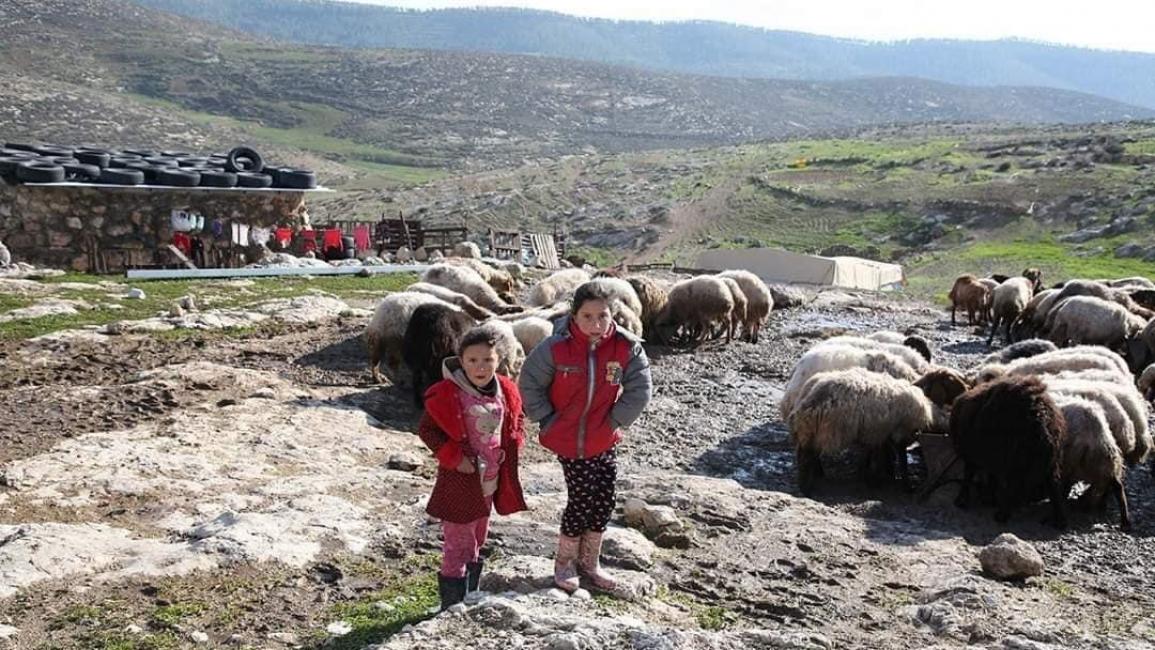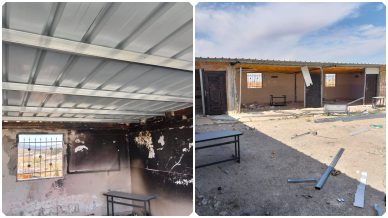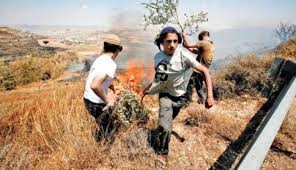AL-KHALIL, (PIC)
Salama Makhamra, a 15-year-old child from the village of Mghayer al-Obeid in the South al-Khalil Hills of the West Bank, had no idea that his trip to fetch water could nearly cost him his life. He was kidnapped, beaten, and threatened by a group of Israeli settlers in an ongoing series of assaults against residents of remote and Bedouin areas in southern al-Khalil. What heightens the concerns of these communities is that settler violence is increasingly targeting children.
Kaid Makhamra, Salama’s father, recounts the events surrounding his son. Salama did not return home on Tuesday, October 22, after heading to a nearby water well to fetch drinking water, as their remote area lacks basic services. His family began to search for him when they noticed unusual movement from the settlers of the nearby Havat Maon outpost.
Kaid told the newspaper Al-Araby Al-Jadid, “After losing hope of finding our son, we saw him coming back late at night from the direction of the settlers’ vehicles. He bore signs of beating, mistreatment, humiliation, and fear. We tried to understand what happened, but he was in shock and unable to speak or express what he had endured.”
Minutes after his return, Salama collapsed on the ground and was rushed by ambulance to Yatta Government Hospital for necessary examinations. His father added, “My son sustained bruises all over his body and injuries to his legs. He was in a psychological state of trauma, feeling close to death, and due to his extreme fear, the doctors were unable to perform a blood test.”
Abduction, mistreatment, and unceasing attacks
After the initial shock subsided, Salama was able to recall the events. He described being kidnapped by three settlers near the village’s water well and being placed in a vehicle with completely tinted windows. They took him to a settlement tent adjacent to the village, where the abductors threatened him with death and beatings, exchanging phone calls that he could not understand, feeling only that he was to be taken far away. During the settlers’ movements around the tent, Salama managed to escape, according to his father.
Since the incident, Salama has been unable to sleep, grappling with a psychological trauma that weighs heavier on him than the physical abuse. His father said, “If it weren’t for the fact that we live on our land, we would have left it. Our lives have not been normal for about a year; the settlers’ attacks do not cease at night, stealing our livestock, which is our source of livelihood. Now, we can’t allow our female family members and children to move around the house, as the settlers move around just 200 meters away.”
Kaid Makhamra noted that they filed a legal complaint at the Israeli police station, but it was ignored on the grounds that there was no documented evidence of the incident.
The attacks on Salama by settlers are not new and will not end, according to his father, who pointed out that the same settlers set up a checkpoint on the road leading to the children’s schools the day before, stopping a vehicle transporting children (including Makhamra’s daughter) and intimidating them with weapons, warning them against using that road again. This situation necessitates, according to Kaid, that official entities provide local protection committees and popular resistance to safeguard the people; otherwise, their lives are at imminent risk, potentially leading to murder.
Resilience amid intimidation
Mghayer al-Obeid is one of the oldest villages in the South al-Khalil Hills, home to about 50 Palestinians living in tin-roofed homes, tents, and stone caves. They refuse to abandon their land despite the lack of basic living conditions, relying on livestock and agriculture for their livelihood.
According to Nidal Abu Aram, head of the South al-Khalil Hills village council, the village experiences at least 20 assaults monthly by Jewish settlers against children in the surrounding areas, with varied forms of aggression, including harassment near their homes, preventing them from grazing sheep and fetching water, and obstructing their access to schools, alongside abductions, beatings, and death threats.
Abu Aram emphasized that the situation for children in the region has worsened since October 7 of last year, as settlers established seven new outposts, consisting of pastoral sites and makeshift tents, housing over 150 settlers whose daily mission is to pursue the local residents, particularly their children.













